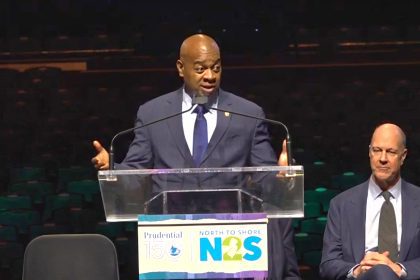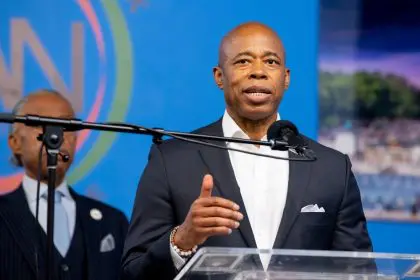A seismic shift is rattling the Republican Party’s foundation as tensions rise over immigration policy, particularly concerning skilled foreign workers in the technology sector. The controversy has exposed deep-seated prejudices and selective outrage within conservative circles, while highlighting the complex history of American immigration reform.
A legacy of selective immigration
America’s immigration policies have long reflected the nation’s conflicting attitudes toward newcomers. From the Chinese Exclusion Act of 1882 to the Immigration Act of 1924‘s national origin quotas, federal legislation has historically favored certain immigrant groups while restricting others. The Immigration and Nationality Act of 1965 marked a significant shift, eliminating the national origins formula and establishing the foundation for modern immigration policy.
The introduction of the H-1B visa program in 1990 represented another evolution in American immigration policy, designed to attract skilled foreign workers during the nascent tech boom. This program — unlike previous immigration initiatives — focused specifically on recruiting educated professionals to fill specialized roles in American industries.
When convenience dictates acceptance
The tech industry’s reliance on foreign talent through the H-1B visa program has become a flashpoint of contention among Republican supporters. This debate reveals a fascinating paradigm shift: some conservative voices that previously championed restrictive immigration policies are now defending the program’s necessity, while others maintain their hardline stance against all forms of immigration.
The same political figures who remained silent during previous discriminatory rhetoric against various immigrant communities are now speaking out against prejudice toward skilled workers from India. This inconsistency highlights a troubling pattern where acceptance appears to be contingent upon perceived economic value rather than human dignity.
The cyclical nature of immigration debate
Throughout American history, economic conditions have often dictated immigration policy shifts. During periods of economic growth, policies tend to become more permissive to address labor shortages. Conversely, economic downturns typically spark restrictionist sentiments and calls for tighter controls.
This pattern continues today, as evidenced by the tech sector’s advocacy for skilled foreign workers while other industries face increased scrutiny and restrictions. The selective application of immigration enforcement and rhetoric mirrors historical instances where economic interests shaped policy decisions, from the Bracero Program of the 1940s to contemporary guest worker initiatives.
Beyond surface politics
The implications of this internal Republican conflict extend far beyond party politics. It serves as a reminder of how quickly political positions can shift when economic interests are at stake. The tech industry’s dependence on global talent has forced some conservative leaders to publicly oppose discrimination against skilled immigrants, even as they maintain support for restrictive policies affecting other immigrant communities.
This dichotomy in treatment and rhetoric reveals deeper truths about power, privilege and acceptance in American society. Immigration policy continues to reflect national anxieties about demographic change, economic security and cultural identity, while simultaneously serving as a tool for economic growth and innovation.
The current debate over skilled worker visas exists within this broader historical context, where immigration policy has consistently balanced competing interests: economic needs, social concerns and political pressures. The selective nature of this outrage against discrimination raises important questions about genuine commitment to equality versus convenience-based tolerance.
As this political drama unfolds, it provides an opportunity for reflection on America’s complex relationship with immigration and racial equality. The situation demonstrates how economic interests can influence political positions on immigration, sometimes leading to inconsistent stances that protect certain groups while maintaining barriers for others.
The ongoing debate serves as a crucial reminder that the fight against discrimination requires consistency and unwavering commitment. It cannot be selective or based on economic convenience. True progress demands recognition and opposition to all forms of prejudice, regardless of the targeted community’s economic status or origin.














